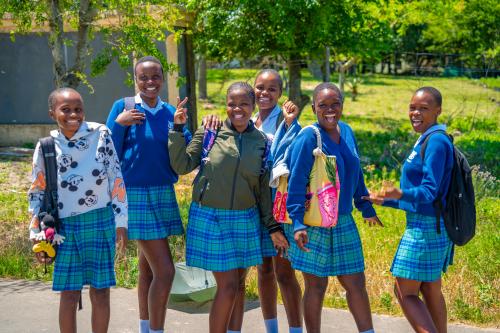This week, the Norwegian government convened the Oslo Summit on Education for Development. Timed auspiciously between the World Education Forum in Incheon and the Third International Conference on Financing for Development in Addis Ababa, Ethiopia, the over-riding message of the summit was “we need to do better together.” It was indeed fitting that partnership took central stage at Oslo this week given the broad and ambitious agenda that the world’s education ministers agreed on this May in Incheon, South Korea. To achieve the education goal of “inclusive and equitable quality education and lifelong learning for all” articulated in Incheon, a goal that will in all likelihood be affirmed in the Sustainable Development Goals this September, the education sector needs everyone to do more. Governments, teacher organizations, civil society, and the business community all need to up their game and, especially important, work better together.
Partnering for increased financing for education was discussed extensively. An explicit objective of the summit was to “reverse the negative trend in international support for education and to contribute to enhanced domestic resource mobilization.” The summit discussions highlighted the global annual funding gap of $39 billion, a gap between what is available in domestic budgets and what is needed from external sources to support early childhood through lower secondary education for all young people, especially those in low-income and fragile states. More funding and better use of existing funding, including transparently tracking resources and addressing inequality within countries, was featured.
The main message, however, was how to work better together on this objective. The most exciting part of the summit was the announcement of a partnership designed to help do just that. The summit chose as a financing background paper “Financing education: Opportunities for global action” by Liesbet Steer and Kathryn Smith of Brookings. One recommendation in that paper came to life with Ban Ki Moon and Prime Minister Erna Solberg among others announcing the formation of a new high-level Commission on the Financing of Global Education Opportunities. This commission will be co-convened by the heads of state of Norway, Indonesia, Chile, and Malawi and the director-general of UNESCO, and the group has appointed U.N. Special Envoy for Global Education Gordon Brown to lead it—an obvious choice given not only his role in the sector but his global expertise on financing for development. The U.N. secretary-general will receive the commission’s report in September 2016. This is a laudable goal, which will hopefully gain traction next week in Addis Ababa as heads of state, finance ministers, and more gather to discuss financing strategies for the Sustainable Development Goals.
Forming mechanisms for partnering to deliver education to children living in contexts of emergencies and protracted crises was another important theme of the summit. Discussion focused on improving how humanitarian and development aid architecture and funding mechanisms work together to help some of the world’s most unfortunate children get an education. Those at the summit committed to “creating a dedicated fund or a new modality for education in emergencies by the World Humanitarian Summit in 2016,” echoing a call made by Gordon Brown earlier in the year.
The importance of quality teaching and learning and reaching marginalized girls to achieving the goals articulated in Incheon were also emphasized. Less concrete announcements on partnerships to do so came out of the summit this week, but some things to look out for in the future include: a renewed focus on networking quality teachers; addressing private sector barriers to getting quality reading material in the hands of poor children; and a renewed focus on girls’ and women’s empowerment and leadership.
The Brookings Institution is committed to quality, independence, and impact.
We are supported by a diverse array of funders. In line with our values and policies, each Brookings publication represents the sole views of its author(s).




Commentary
This week’s Oslo Summit on Education for Development pushes all to ‘do better together’
July 10, 2015